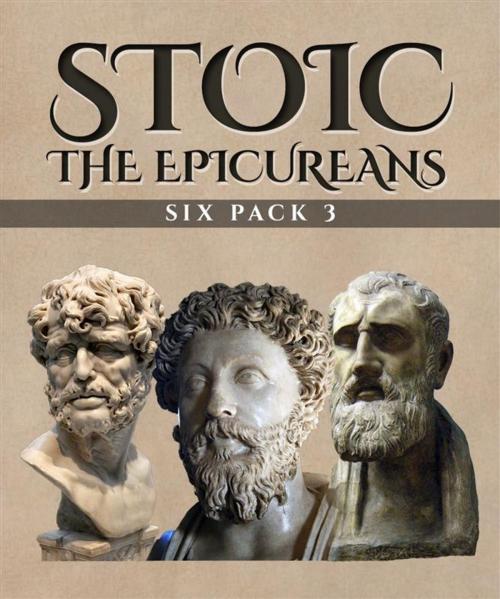Stoic Six Pack 3 (Illustrated)
Six Essential Texts
Nonfiction, Religion & Spirituality, Philosophy, Ancient| Author: | Various Artists | ISBN: | 9781365487446 |
| Publisher: | Enhanced Media Publishing | Publication: | November 8, 2016 |
| Imprint: | Language: | English |
| Author: | Various Artists |
| ISBN: | 9781365487446 |
| Publisher: | Enhanced Media Publishing |
| Publication: | November 8, 2016 |
| Imprint: | |
| Language: | English |
“It is folly for a man to pray to the gods for that which he has the power to obtain by himself.”
- Epicurus.
Founded in the fourth century BC, Epicureanism was the main alternative philosophy to Stoicism. Based upon the teachings of Greek philosopher Epicurus, the philosophy propounded an ethic of individual pleasure as the sole or chief good in life. Epicurus advocated living in such a way as to derive the greatest amount of pleasure possible during one's lifetime, yet doing so moderately in order to avoid the suffering incurred by overindulgence in such pleasure. It is not the same as hedonism which advocates the partaking in fleeting pleasures such as constant partying, sexual excess and decadent food. Epicurus considered prudence an important virtue and perceived excess and overindulgence to be contrary to the attainment of true happiness. The emphasis was placed on pleasures of the mind rather than on physical pleasures. For Epicurus, who you dine with is more important than what you eat.
Epicurus lived a celibate life but did not impose this restriction on his followers. He ran a school from his home called The Garden, a small but prestigious gathering that emphasized friendship as an important ingredient of happiness. It was a sophisticated place by Athenian standards, counting women and slaves among its members and it was the first recorded organization to make vegetarianism a way of life.
The school's popularity grew and it became, along with Stoicism and Skepticism, one of the three dominant schools of Hellenistic Philosophy. Epicureanism flourished for seven centuries.
Stoic Six Pack 3: The Epicureans brings together six Epicurean master works:
The Letters of Epicurus
Principal Doctrines of Epicurus
De Finibus Bonorum et Malorum by Cicero
On the Nature of Things by Lucretius
Upon the Gardens of Epicurus by William Temple
Stoics vs Epicureans by Robert Drew Hicks
These six texts provide a full introduction to Epicureanism.
*Includes hand-curated original images.
“It is folly for a man to pray to the gods for that which he has the power to obtain by himself.”
- Epicurus.
Founded in the fourth century BC, Epicureanism was the main alternative philosophy to Stoicism. Based upon the teachings of Greek philosopher Epicurus, the philosophy propounded an ethic of individual pleasure as the sole or chief good in life. Epicurus advocated living in such a way as to derive the greatest amount of pleasure possible during one's lifetime, yet doing so moderately in order to avoid the suffering incurred by overindulgence in such pleasure. It is not the same as hedonism which advocates the partaking in fleeting pleasures such as constant partying, sexual excess and decadent food. Epicurus considered prudence an important virtue and perceived excess and overindulgence to be contrary to the attainment of true happiness. The emphasis was placed on pleasures of the mind rather than on physical pleasures. For Epicurus, who you dine with is more important than what you eat.
Epicurus lived a celibate life but did not impose this restriction on his followers. He ran a school from his home called The Garden, a small but prestigious gathering that emphasized friendship as an important ingredient of happiness. It was a sophisticated place by Athenian standards, counting women and slaves among its members and it was the first recorded organization to make vegetarianism a way of life.
The school's popularity grew and it became, along with Stoicism and Skepticism, one of the three dominant schools of Hellenistic Philosophy. Epicureanism flourished for seven centuries.
Stoic Six Pack 3: The Epicureans brings together six Epicurean master works:
The Letters of Epicurus
Principal Doctrines of Epicurus
De Finibus Bonorum et Malorum by Cicero
On the Nature of Things by Lucretius
Upon the Gardens of Epicurus by William Temple
Stoics vs Epicureans by Robert Drew Hicks
These six texts provide a full introduction to Epicureanism.
*Includes hand-curated original images.















